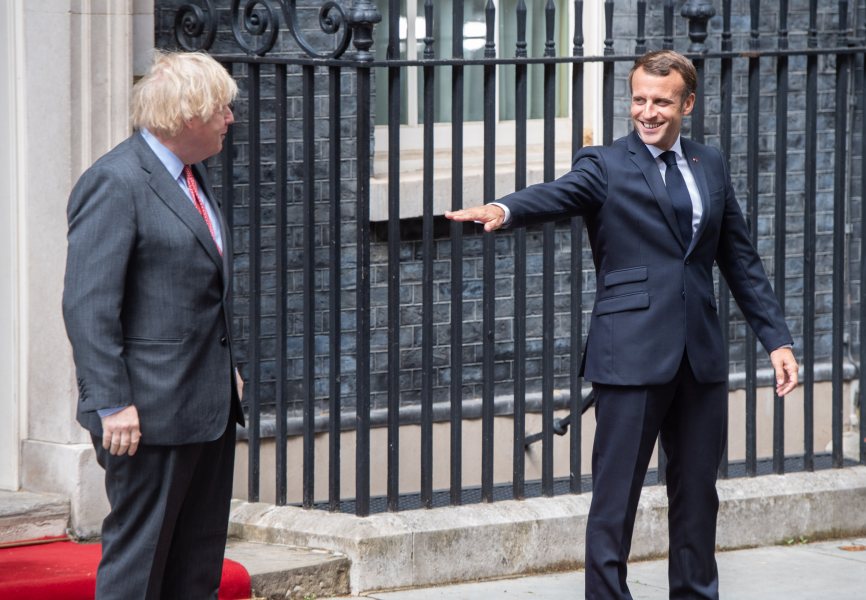Faced with an unprecedented public health crisis,
Europe offered an unprecedented response, with
27 states signing off on a coordinated relief effort. But questions about the relief fund's execution—as well as the ongoing saga of
Brexit—will continue to bedevil the European Union into 2021.
What was the biggest story in Europe in 2020?
Europe's
Covid-19 experience was the most significant story of 2020. National strategies have varied, and some countries were better than others in managing the first wave this spring, but none have escaped temporary restrictions to everyday life, which seemed inviolable at the beginning of the year. With the help of strict lockdowns, healthcare systems have for the most part coped well, with only a few instances of healthcare infrastructures being overwhelmed.
Instead,
voters will remember more obvious mistakes made by governments, from depleted mask and protective equipment stocks to ineffective test-and-trace systems and haphazard approaches to restrictions.
European governments were very quick to implement massive macroeconomic support packages, with few precedents in recent history. So far, these have kept the number of layoffs and bankruptcies far lower than would have been expected under a sharp contraction of economic activity. The debt burden is still manageable, thanks to equally large monetary stimulus by the European Central Bank (ECB), which has kept Europe's sovereign debt and money markets functioning. Governments are still able to borrow on favorable terms, which was far from a given at the onset of the crisis.
In the initial stages of the pandemic, citizens' public perceptions of the European Union (EU) were dominated by the bloc's apparent inability to help with the crisis, as member states retain full authority over their own
healthcare policy and assistance. Since then, however, the EU's policy response has lived up to the challenge, reflecting lessons learnt since the Eurozone crisis as well as the unprecedented nature of the present downturn.
After some stops and starts, EU leaders agreed to establish a historic €750 billion Recovery and Resilience Facility (RRF) which will be implemented in 2021 and help finance the recovery complementing spending at the national level. This will mark an unprecedented increase in EU borrowing and spending, directed to worst-affected states. Large-scale economic stimulus by the ECB has been remarkably uncontroversial, and strict EU fiscal rules have been suspended to avoid premature tightening. Finally, the EU has and will play a key role in acquiring and distributing vaccines, which will be given to member states on an equitable basis starting in January.
What was the most overlooked story in 2020?
The
ongoing Brexit saga would have deserved persistent front-page coverage this year were it not for the pandemic. When
UK Prime Minister Boris Johnson won his majority a year ago, it became clear the UK would leave the EU and seek a fairly basic, zero-tariff, zero-quota follow-on trade deal. Under any scenario, disruptions to trade were set to increase.
But the
pandemic has made the UK government's strategy even riskier. As early as March, the European Commission made clear that it was willing to negotiate an extension to the transition period given the exceptional and unforeseeable circumstances. Johnson's cabinet not only refused but frequently toyed with the idea of leaving the status-quo transition with no deal, assuming the economic consequences would be masked by the pandemic's fallout.
After countless ultimatums and missed deadlines, the two sides are still negotiating and plan to keep going past Christmas if necessary. Positive noises around level-playing-field provisions and fishing rights have revived some confidence in a deal, but the last-minute haggling has disrupted authorities and businesses' preparations for more paperwork and slower checks once the transition period ends on 31 December. Furthermore, prolonging negotiations well into December will leave very little time for national parliaments to ratify a trade agreement if and when one is reached. Expect a bumpy road through the first months of 2021.
What is the most important story to watch for in 2021?
The RRF grants EU institutions a much larger role in member states' macroeconomic support and development. This is an important trend to watch for two reasons.
First, disbursements cannot come soon enough. Against the odds, a coalition of member states led by France obtained an assistance package dominated by grants, instead of cheap loans. For Spain, Italy, and other countries badly affected by Covid-19's first wave, this injection of cash will help boost economic activity and make the removal of furlough schemes less painful. Governments have already kept their expensive domestic support schemes running for longer than expected, and these will have to be tapered as soon as the vaccination campaigns bring cases down.
Second, allowing the European Commission to borrow substantially is a watershed moment in European integration. To keep skeptical countries on board, the German presidency often stressed this would be a one-off policy, but the fact that the taboo has been broken makes further improvements to the EU's economic framework easier.
On the other hand, the new debt burden will have to be repaid somehow, so the Commission's plans for new EU-wide taxes on digital services and other areas will be a watchpoint.
Learn more:
 UK Prime Minister Boris Johnson and French President Emmanuel Macron. REUTERS.
UK Prime Minister Boris Johnson and French President Emmanuel Macron. REUTERS.
